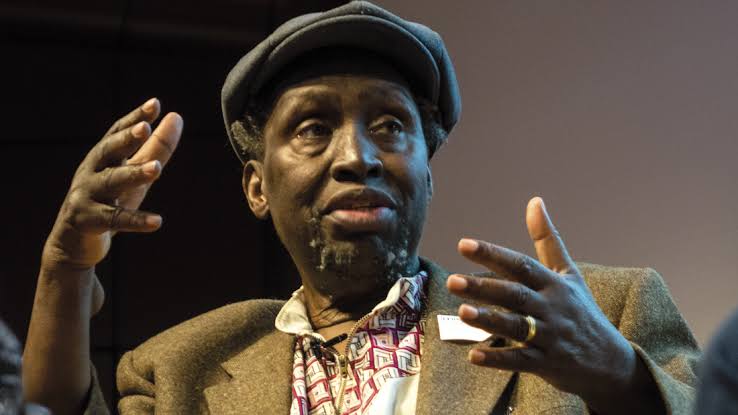By Isaac Christopher Lubogo
“A writer’s duty is to help people see the world as it is—and to imagine it otherwise.”
—Ngũgĩ wa Thiong’o
Today, we gather not only to mourn the passing of Ngũgĩ wa Thiong’o, but to reckon with the silence left behind by one of the greatest minds ever born on African soil—a silence so profound, it echoes louder than drums of revolution, deeper than the wounds of colonialism, and more eternal than ink on paper.
Ngũgĩ was not just a writer. He was a prophet in exile, a warrior of words, a rebel scholar whose quill pierced through the hypocrisy of empires and the silence of a betrayed continent.
He did not write to entertain. He wrote to awaken. Every sentence he ever crafted was a wound opened for healing, a rebellion summoned through ink, a prayer for Africa spoken in her mother tongues.
Born in a land still scarred by colonial violence, Ngũgĩ rejected the convenient comfort of imperial languages and chose instead to confront us with our own.
In a world that begged for assimilation, he chose authenticity. In a literary landscape awash with colonial mimicry, he dared to dream in Gikuyu.
“The choice of language and the use to which language is put is central to a people’s definition of themselves in relation to their natural and social environment, indeed in relation to the entire universe.”
He reminded us that the colonization of the mind is more enduring than the occupation of the land—and that no people can truly be free until their tongues can name their truths without translation.
His seminal works—Weep Not, Child, The River Between, A Grain of Wheat, and Decolonising the Mind—were more than literature.
They were manifestos of liberation, psychological maps for the unshackling of a people, blueprints for decolonization that challenged not only systems, but the very souls entrapped within them.
His writing was sharp enough to disturb the powerful and honest enough to dignify the poor.
When they imprisoned him in 1977 for writing a play (Ngaahika Ndeenda – I Will Marry When I Want) in his native language that exposed class exploitation, Ngũgĩ responded by composing a full novel, Devil on the Cross, on toilet paper from his cell in Kamiti Maximum Security Prison.
Who does that? Only a mind afire with purpose. Only a man so possessed by truth that even chains could not restrain his thoughts.
Ngũgĩ wa Thiong’o died as he lived—resolute, radical, and deeply African.
But what does his death mean to us?
It means the passing of a generation that still believed Africa could write herself free.
It means we must now look inward, speak louder, write deeper, and unlearn faster.
It means the torch has fallen—not extinguished—but passed to those brave enough to carry it.
Ngũgĩ taught us that language is memory. That to speak in Gikuyu, Luganda, Yoruba, or Kiswahili is not parochialism—it is resistance. It is dignity. It is resurrection.
He taught us that exile is not absence. That home is not a place—but a truth one refuses to betray.
He taught us that the battle for Africa’s soul is not fought in parliaments or palaces—but in books, in classrooms, in songs, in dreams.
And now, in death, he asks us only this: What will you do with the truth I died for?
Let us not mourn Ngũgĩ by lowering our heads. Let us mourn him by raising our voices.
Let us not remember him only with flowers at his grave—but by planting forests of thought in the minds of our children.
The colonizers once tried to bury him in silence. They failed.
Today, we bury him in reverence—knowing fully well that legends never truly die. They are reborn in every mind they have liberated.
Farewell, Ngũgĩ wa Thiong’o.
You wrote Africa into herself.
You decolonized the mind.
And now, through our lives and pens—we shall decolonize the future.
Have An Advert Or Article You Want Us To Publish? Whatsapp: +256786288379 or email binocularugnews@gmail.com
